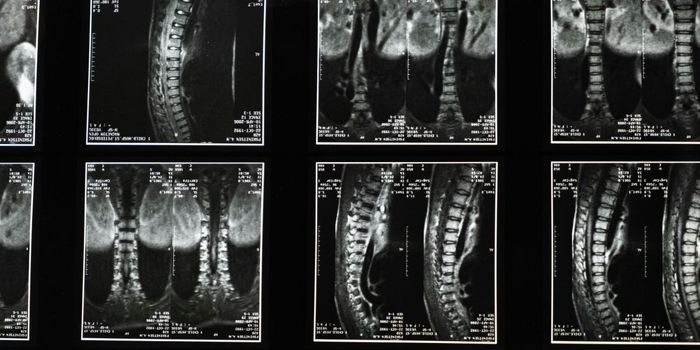Iron Build-up in Brain Linked to Alzheimer's
Researchers from the Medical University of Graz in Austria have found a link between the build-up of iron in the brain's neocortex and cognitive decline in people with Alzheimer's disease.
Previous research has already established a link between unusually high levels of iron in the brain and Alzheimer's disease. In particular, iron deposits have been found to correlate with amyloid-beta accumulation, a protein that forms plaques between neurons in the brains of people with Alzheimer's and disrupts cell function.
For the new study, the researchers developed a new MRI technique using a 3T MRI scanner, that allowed them to achieve an optimal trade-off between resolution and scan time, to best map iron deposits in different areas of the participants' brains.
In particular, they used it to examine baseline levels of brain iron in 100 people with Alzheimer's disease and 100 healthy controls. Among those with Alzheimer's, 56 also underwent neuropsychological testing and brain MRI at an average follow-up time of 17 months.
"We found indications of higher iron deposition in the deep gray matter and total neocortex, and regionally in temporal and occipital lobes, in Alzheimer's disease patients compared with age-matched healthy individuals," says Dr. Reinhold Schmidt, one of the study's co-authors.
Iron accumulation also was linked to cognitive deterioration independently of loss in brain volume. Furthermore, iron concentration changes in the temporal lobes were found to correlate with cognitive decline in those with Alzheimer's.
Schmidt thus concludes that these results are in line with previous suggestions that high iron concentrations encourage amyloid-beta deposits to form alongside general neurotoxicity associated with Alzheimer's.
The researchers are hopeful that their findings will inform the use of drugs, known as chelators, to reduce iron levels in the brain and body. They also hope that their MRI-based screening method will be used as a future diagnostic tool for Alzheimer's and to monitor treatment response.
Sources: Neuroscience News, Technology Networks









